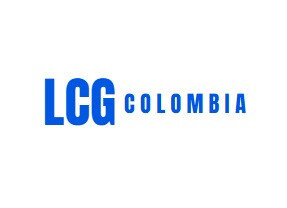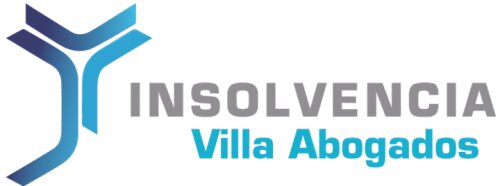Best Real Estate Contracts and Negotiations Lawyers in Bogota
Share your needs with us, get contacted by law firms.
Free. Takes 2 min.
Free Guide to Hiring a Real Estate Lawyer
List of the best lawyers in Bogota, Colombia
About Real Estate Contracts and Negotiations
Real estate contracts and negotiations are essential components of buying, selling, or leasing property in Bogota, Colombia. These agreements outline the rights and obligations of each party involved and provide legal security for the transaction. Whether dealing with residential, commercial, or industrial properties, it is crucial to understand the legal framework that governs these agreements to avoid potential disputes or financial losses. Real estate transactions can be complex due to regulatory requirements, language barriers, and unique local practices.
Law in Bogota, Colombia: A Brief Overview of Real Estate Contracts and Negotiations
In Bogota, real estate contracts are primarily governed by the Colombian Civil Code, which establishes the general rules for property transactions. Several specific statutes and local regulations may also apply, such as the Urban Reform Law and Notary regulations. These laws set the standards for drafting contracts, registering property, and resolving disputes. Most real estate transactions must be formalized in writing, signed before a notary public, and registered at the local Registry Office (Oficina de Registro de Instrumentos Públicos). The process ensures that title transfer or lease is legally enforceable and recognized by public authorities.
Why You May Need a Lawyer
Engaging a lawyer in real estate contracts and negotiations is highly recommended in Bogota for several reasons. Lawyers can review contracts to ensure their legality and fairness, identify potential risks, and protect your interests. Common situations where legal help is essential include:
- Buying or selling real estate for the first time
- Negotiating lease terms or renewals for commercial or residential properties
- Addressing boundary or ownership disputes
- Handling issues with property titles or liens
- Investing in off-plan developments or pre-construction projects
- Managing inheritance or family law matters that impact property ownership
- Dealing with eviction or breach of contract scenarios
A lawyer guides you through the negotiation process, clarifies obligations, drafts or reviews agreements, and ensures compliance with Colombian law. Their expertise is invaluable, especially for foreigners or those unfamiliar with local customs and regulations.
Local Laws Overview
Several legal aspects are critical to real estate contracts and negotiations in Bogota:
- Mandatory Written Contracts: Real estate sales and long-term leases must be formalized in writing and often require notarization and registration.
- Due Diligence Requirements: Buyers must verify property ownership, existing liens, encumbrances, and zoning regulations through public registries.
- Contract Clauses: Common terms include purchase price, payment schedules, delivery date, penalties for breach, and dispute resolution procedures.
- Foreign Ownership: Foreigners may purchase property in Colombia with some restrictions, especially close to border zones. All buyers, regardless of nationality, must comply with tax and reporting requirements.
- Notarial Process: Deeds and other property documents must be executed before a notary public, who verifies identities and the legality of the transaction.
- Registration: A transfer of ownership must be registered with the Oficina de Registro de Instrumentos Públicos. Registration is essential for enforceability and protection of your rights.
- Taxes and Fees: Transactions are subject to transfer taxes, notarial fees, and registration costs. Parties should be aware of their fiscal obligations.
Understanding these legal fundamentals will help ensure a smooth and secure real estate transaction.
Frequently Asked Questions
What role does the notary play in real estate contracts in Bogota?
The notary ensures the legality of the transaction, verifies the parties’ identities, and confirms that the contract meets all legal requirements. The notary also documents the transaction and registers it with the public registry.
Is it mandatory to register a real estate contract?
Yes, for sales and certain lease agreements, registration at the local Registry Office is mandatory for the contract to be enforceable and to protect ownership rights.
Can foreigners buy property in Bogota?
Foreigners can generally buy property in Bogota, although there may be restrictions in certain areas due to national security or border zone regulations. Foreigners must also comply with local tax and reporting requirements.
What should I check before signing a real estate contract?
Conduct due diligence on the property title, ensure there are no liens or encumbrances, verify the seller’s identity and powers to sell, and review the contract terms with a lawyer.
What taxes and fees are associated with real estate transactions?
Buyers and sellers typically pay transfer taxes, notarial fees, and registration costs. These fees vary depending on the property value and transaction details.
How is a dispute in a real estate transaction resolved?
Most contracts include a dispute resolution clause, which may specify mediation, arbitration, or ordinary court proceedings. Colombian law also provides for legal actions to resolve contract breaches.
Is a verbal agreement valid for real estate transactions?
No, verbal agreements do not generally have legal effect for property sales or long-term leases. These contracts must be in writing and, in most cases, notarized and registered.
Do lease agreements need to be registered?
Lease agreements longer than two years or with an option to purchase should be registered to ensure enforceability and protect the tenant’s or landlord’s rights.
What happens if a contract party breaches the agreement?
The injured party can seek remedies such as damages, specific performance, or contract termination. The contract may also include penalties or interest for late payments.
Can I negotiate the terms of a standard real estate contract?
Yes, parties can and should negotiate key terms such as price, payment structure, deadlines, and contingencies. A lawyer’s assistance is useful in ensuring that the negotiated terms are legally sound and protect your interests.
Additional Resources
Below are some organizations and governmental bodies that provide useful information and assistance regarding real estate contracts and negotiations in Bogota:
- Oficina de Registro de Instrumentos Públicos: Manages property registry services across Colombia.
- Superintendencia de Notariado y Registro: Supervises notarial work and public registries.
- Cámara de Comercio de Bogotá: Supports business and property transactions, provides legal advice services.
- Colombian Bar Association (Colegio de Abogados): Helps locate accredited real estate lawyers in Bogota.
- Defensoría del Pueblo: Offers guidance on legal rights and dispute resolution for consumers and property owners.
Next Steps
If you need legal assistance regarding real estate contracts and negotiations in Bogota, follow these steps:
- Gather all relevant documentation, including property titles, previous contracts, identification, and financial records.
- Clarify your goals for the transaction, such as buying, selling, leasing, or resolving a dispute.
- Consult with an experienced real estate lawyer familiar with Bogota’s local regulations. A lawyer will review your documents, advise you on your rights, and help you navigate the process.
- Request a written review or drafting of your contract before signing.
- Ensure that all transactions are conducted before a notary public and registered as required by Colombian law.
- Keep records of all communications and contracts related to the transaction for your protection.
Taking these steps will protect your interests and help ensure that your real estate transaction in Bogota is safe, legal, and successful.
Lawzana helps you find the best lawyers and law firms in Bogota through a curated and pre-screened list of qualified legal professionals. Our platform offers rankings and detailed profiles of attorneys and law firms, allowing you to compare based on practice areas, including Real Estate Contracts and Negotiations, experience, and client feedback.
Each profile includes a description of the firm's areas of practice, client reviews, team members and partners, year of establishment, spoken languages, office locations, contact information, social media presence, and any published articles or resources. Most firms on our platform speak English and are experienced in both local and international legal matters.
Get a quote from top-rated law firms in Bogota, Colombia — quickly, securely, and without unnecessary hassle.
Disclaimer:
The information provided on this page is for general informational purposes only and does not constitute legal advice. While we strive to ensure the accuracy and relevance of the content, legal information may change over time, and interpretations of the law can vary. You should always consult with a qualified legal professional for advice specific to your situation.
We disclaim all liability for actions taken or not taken based on the content of this page. If you believe any information is incorrect or outdated, please contact us, and we will review and update it where appropriate.















